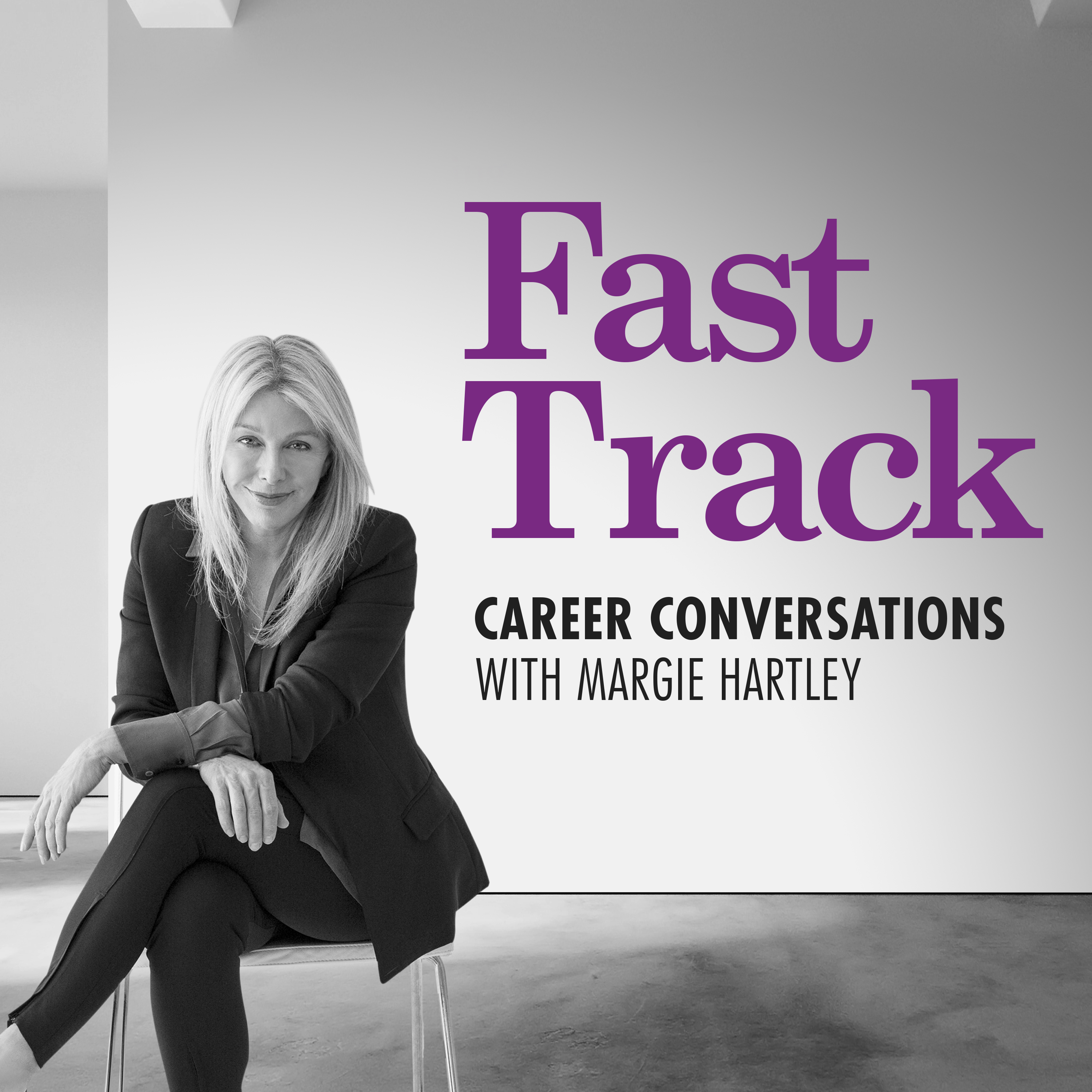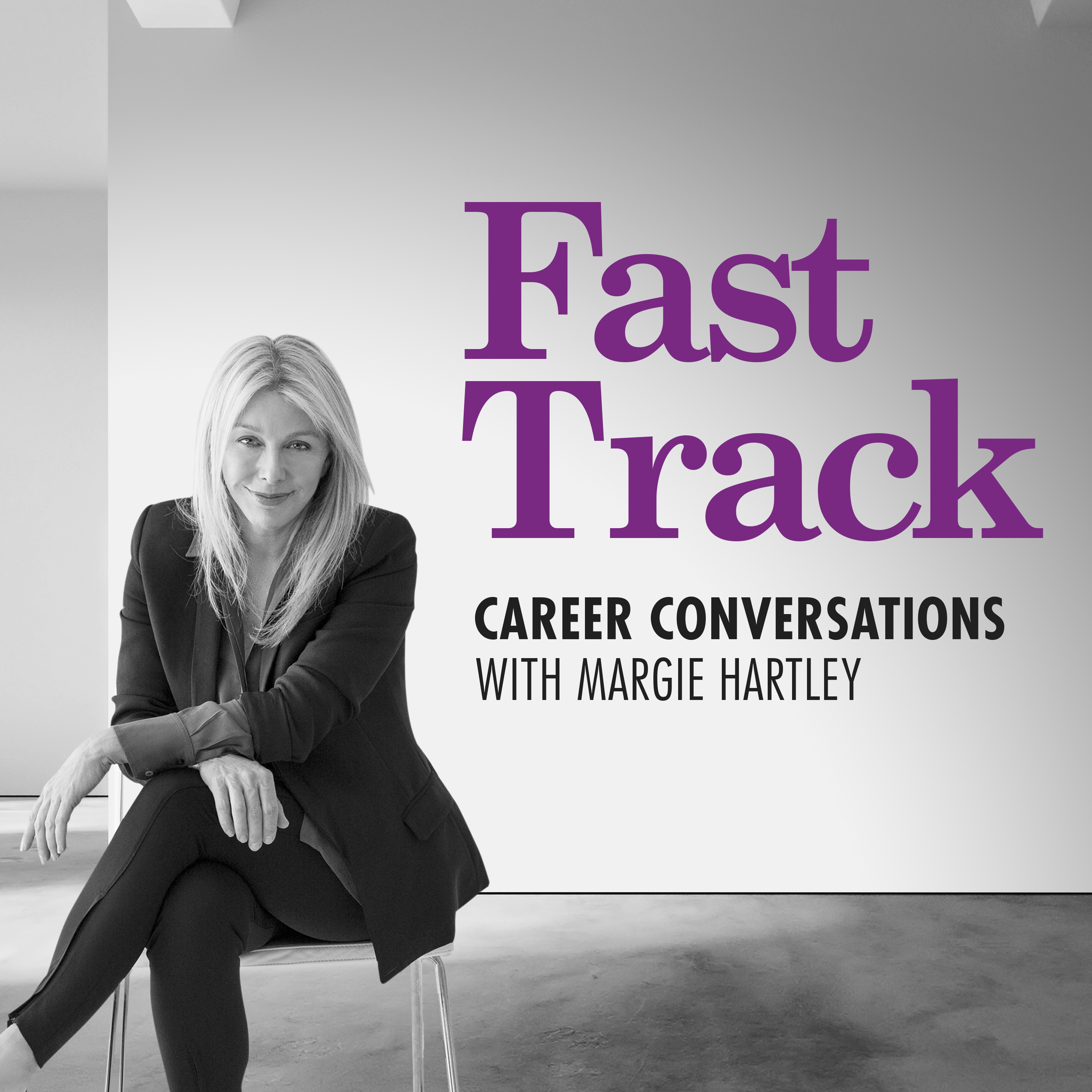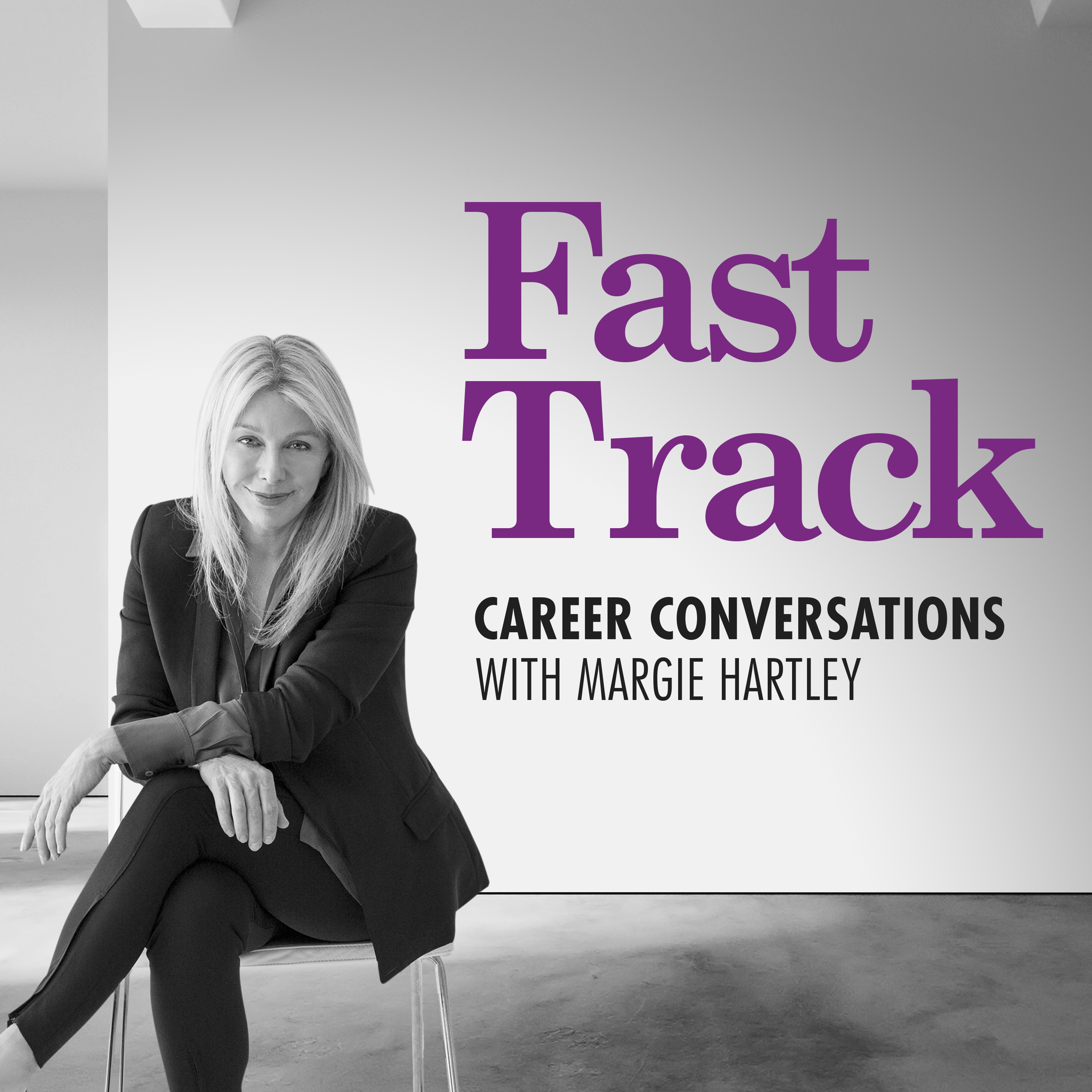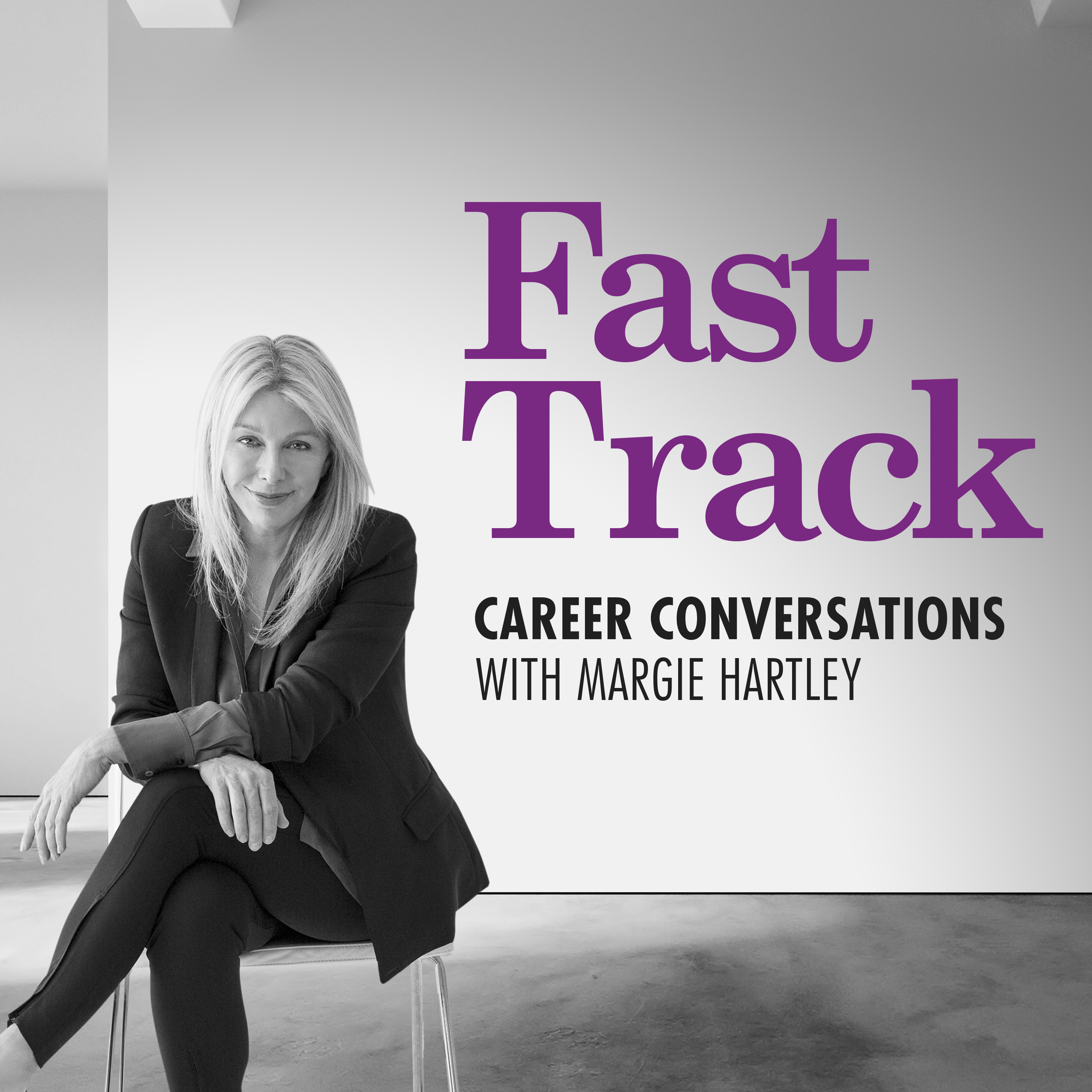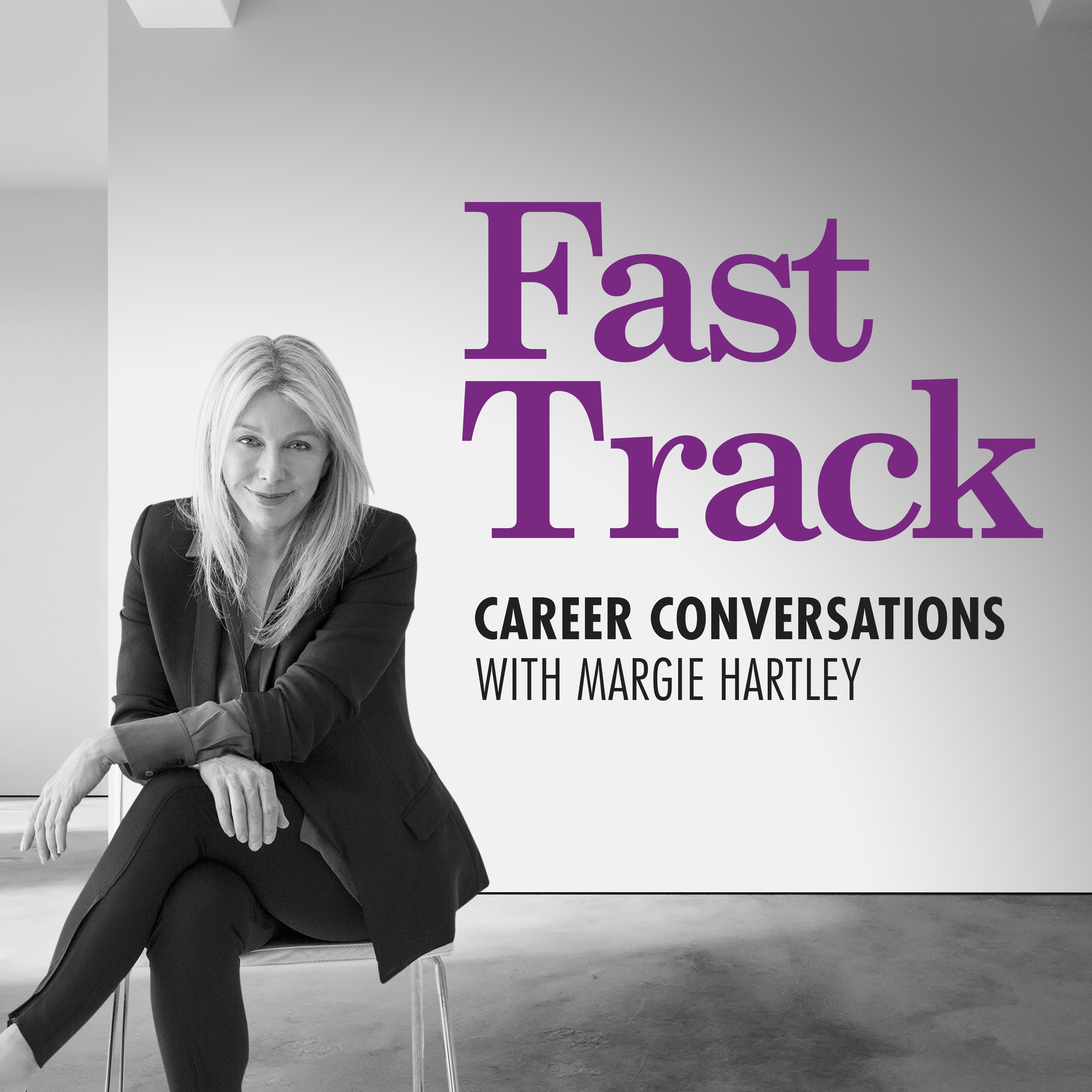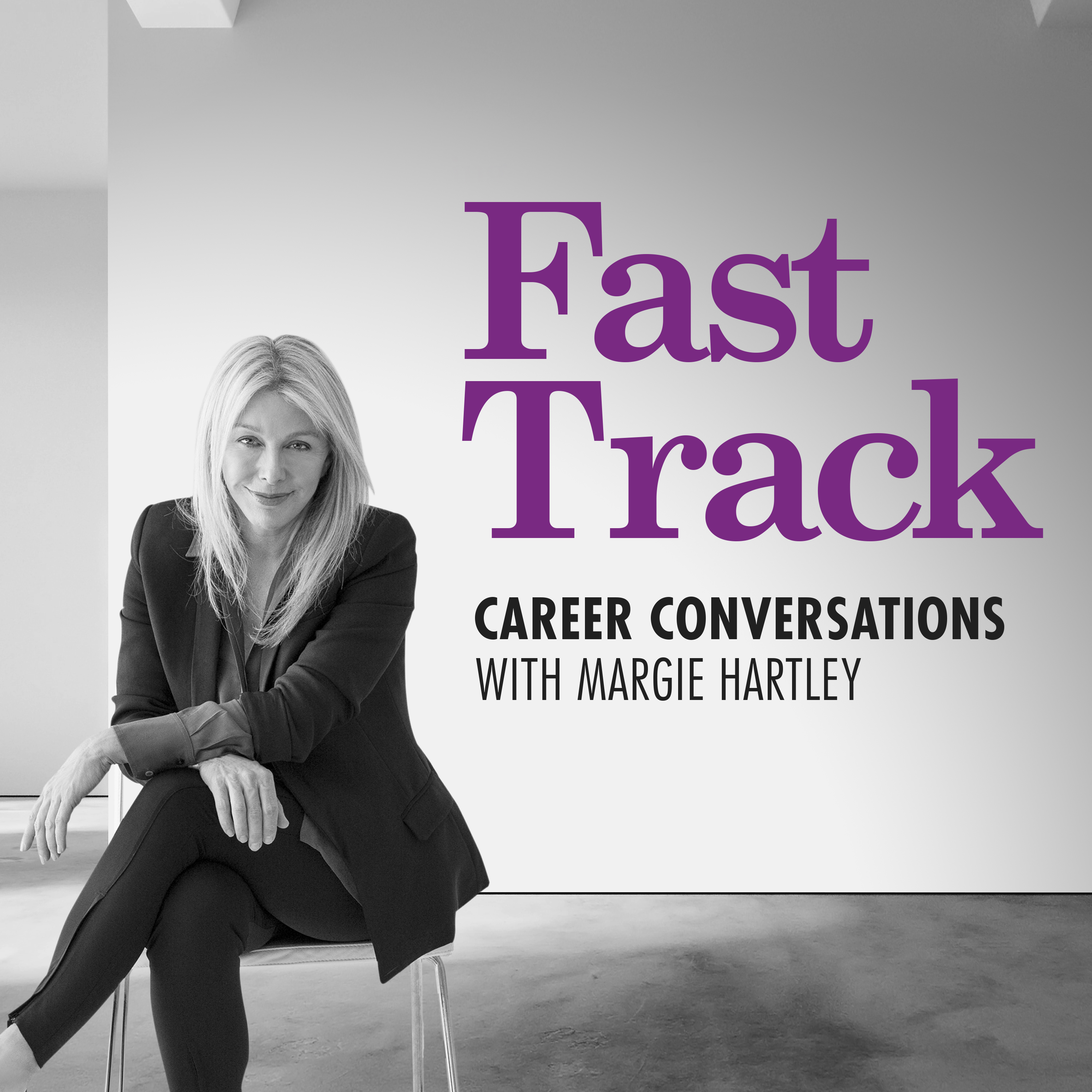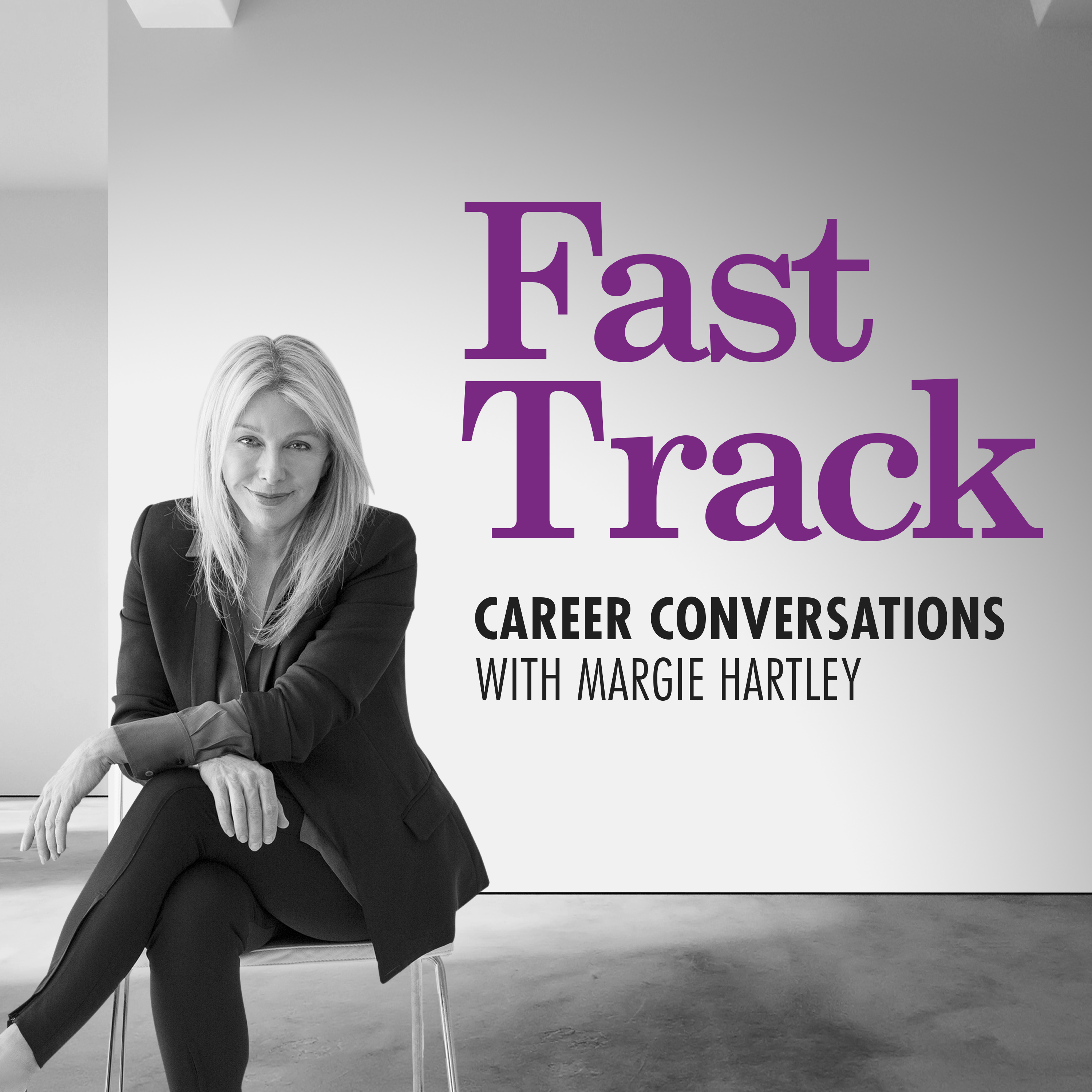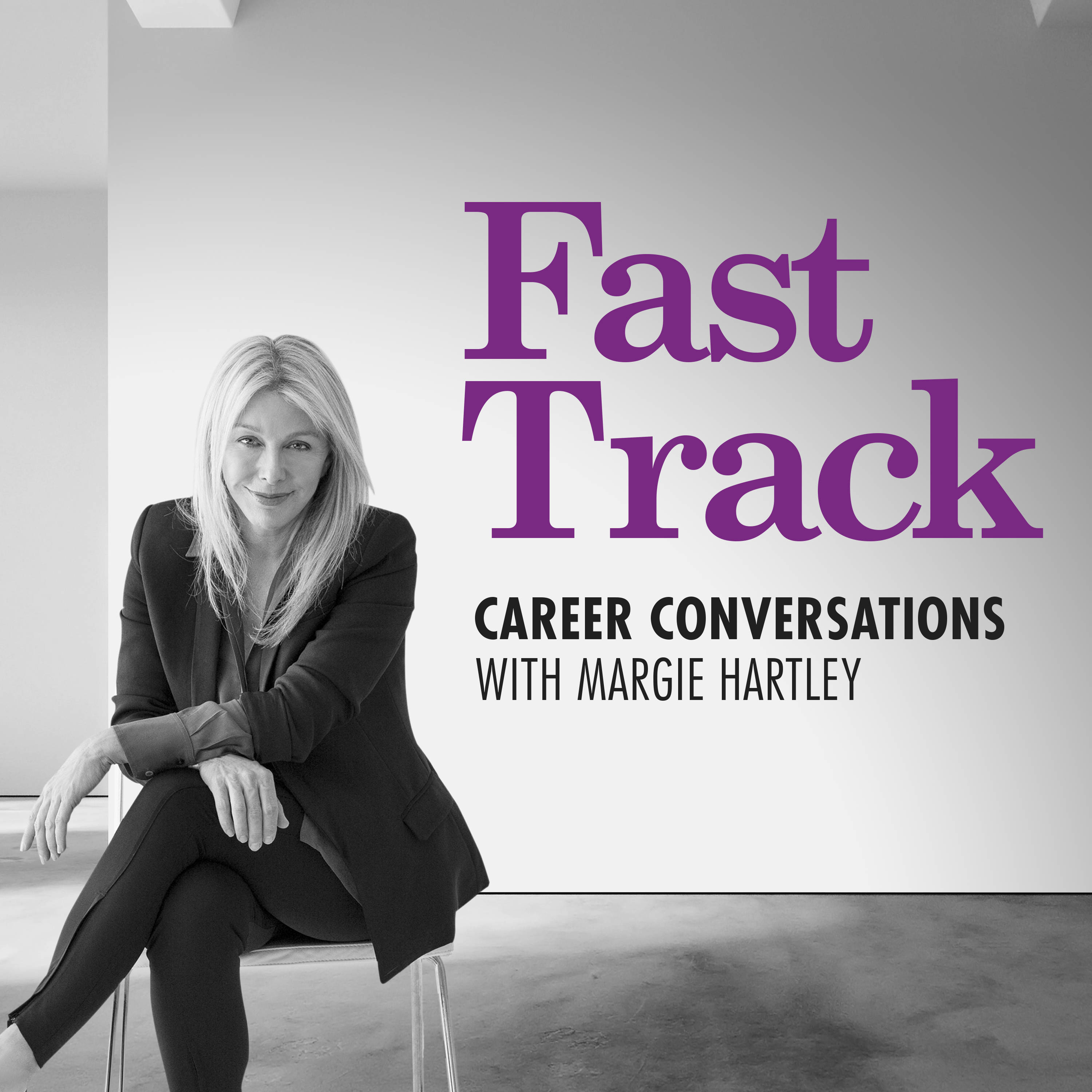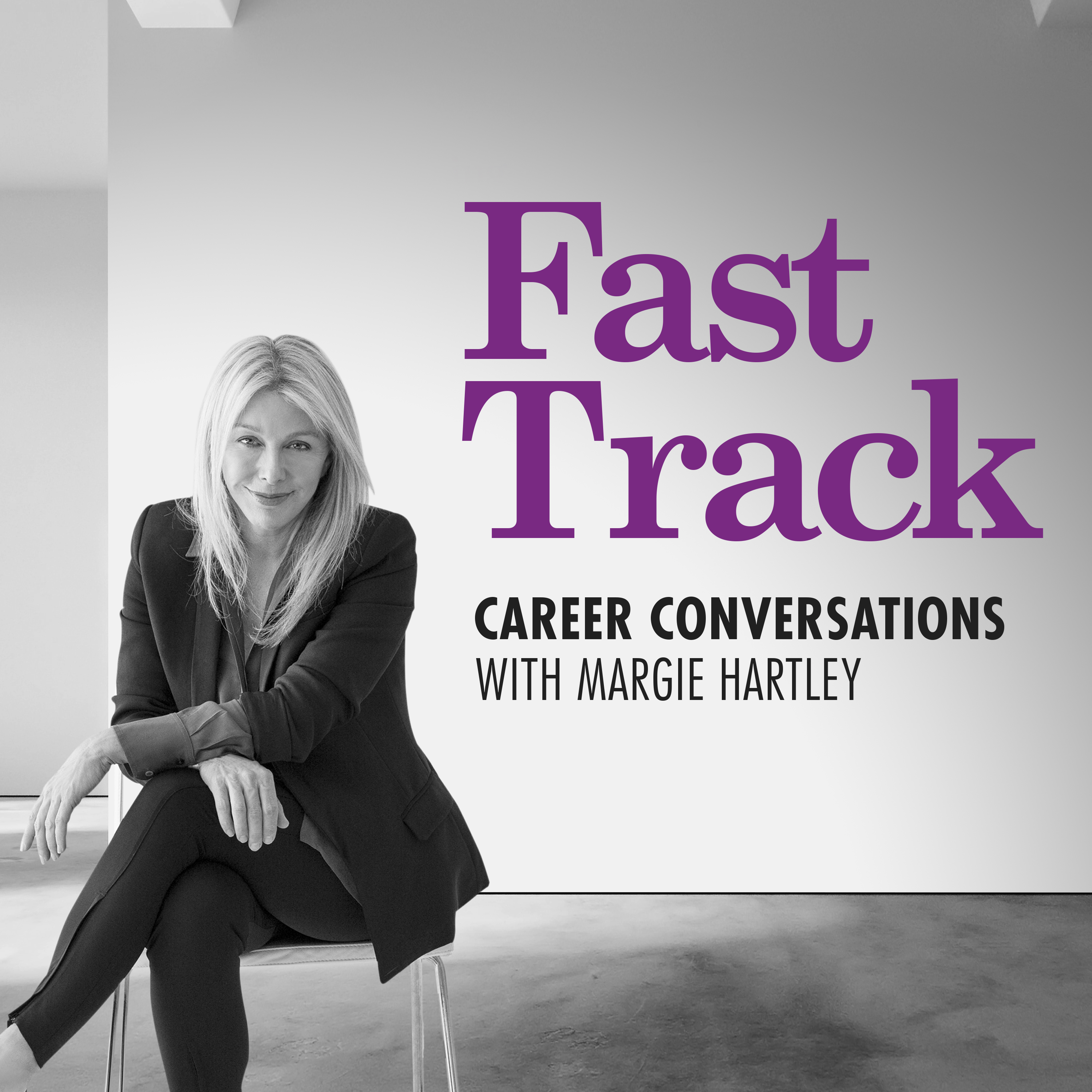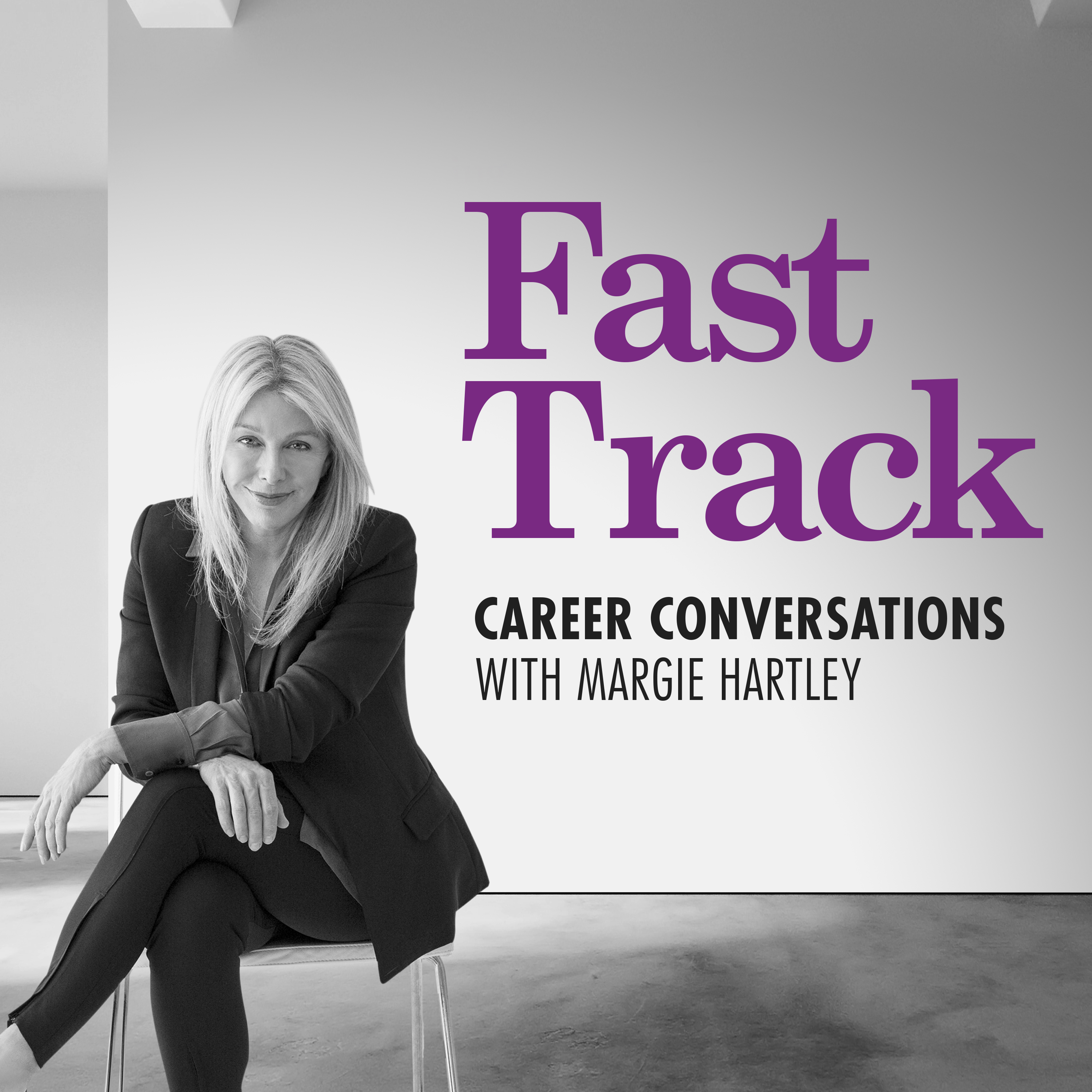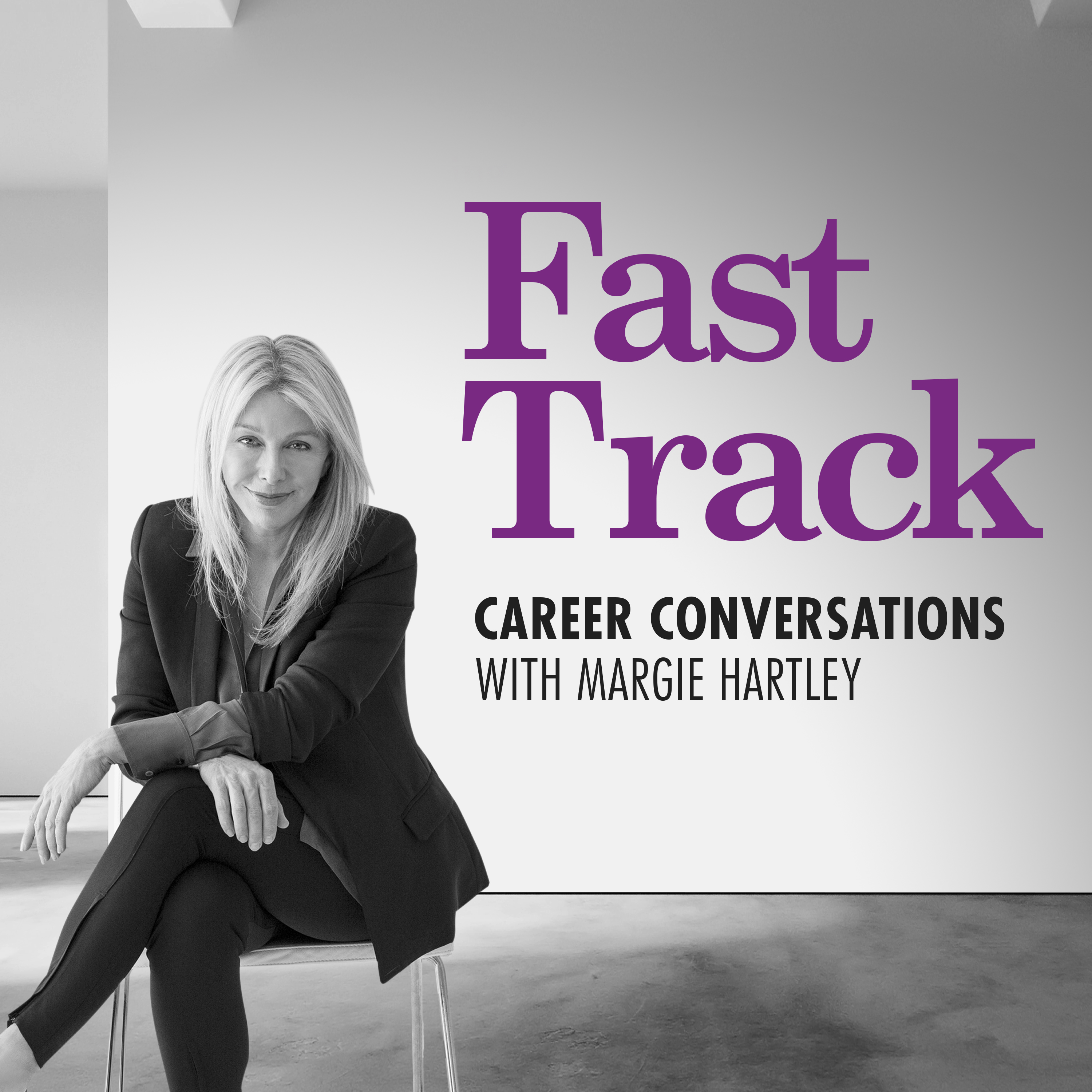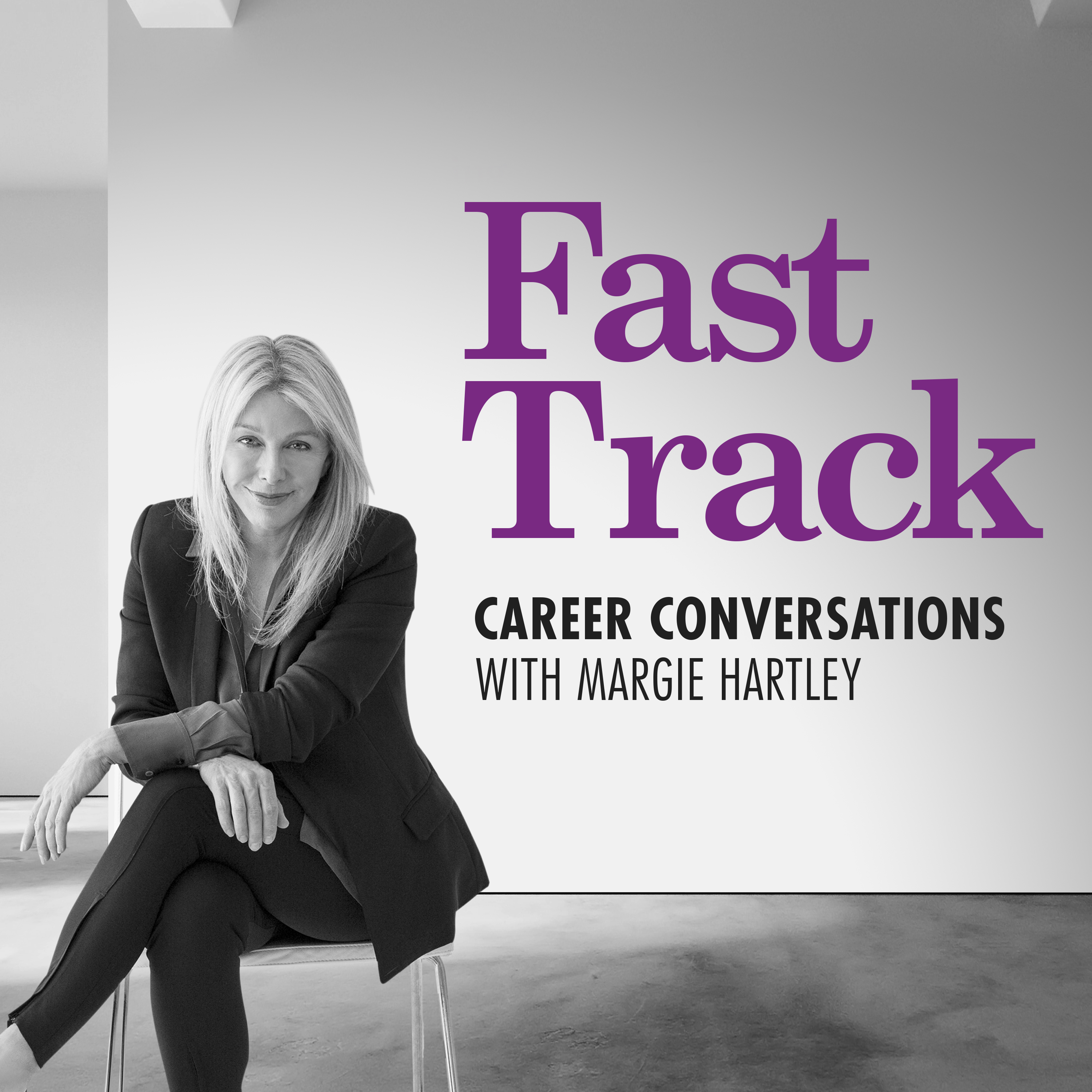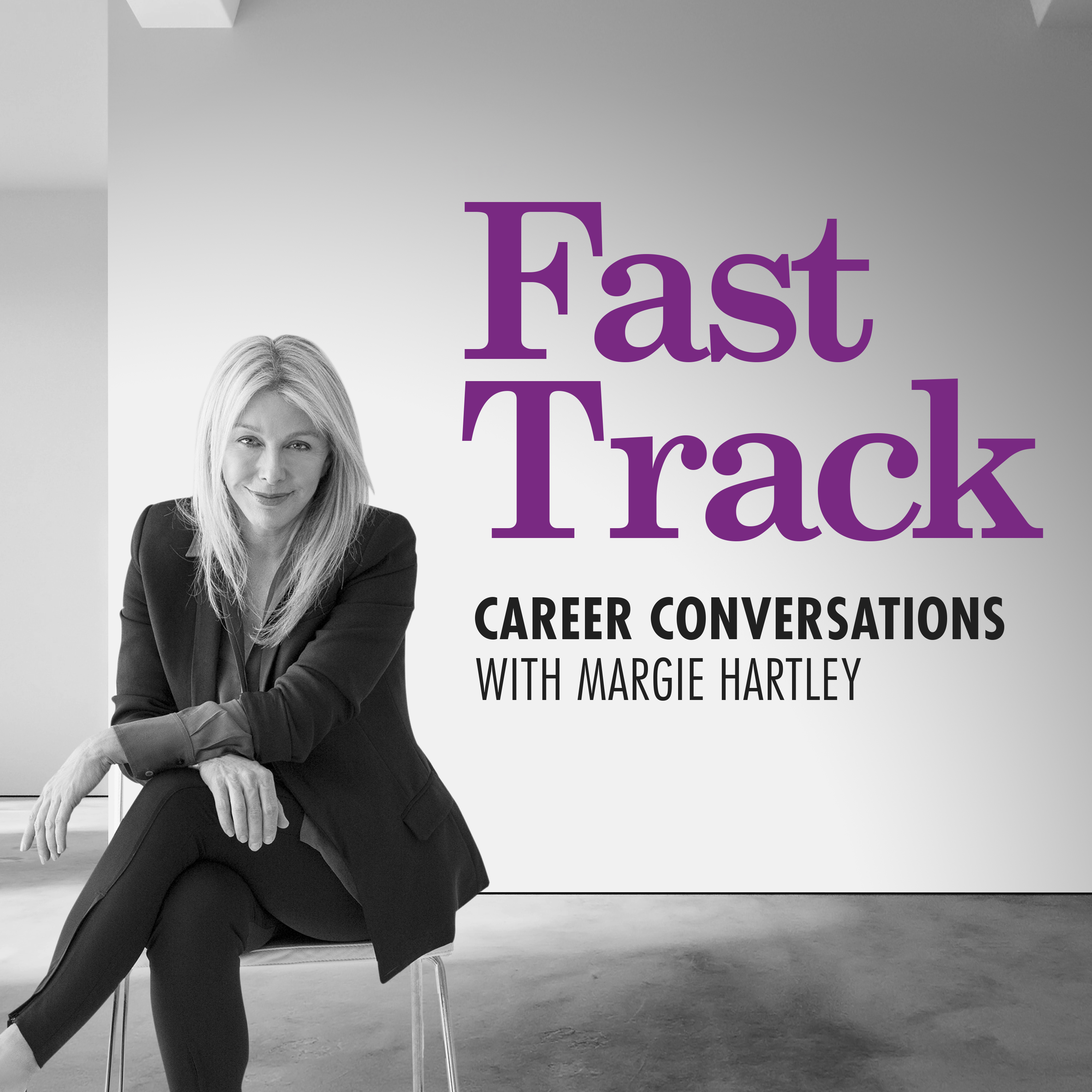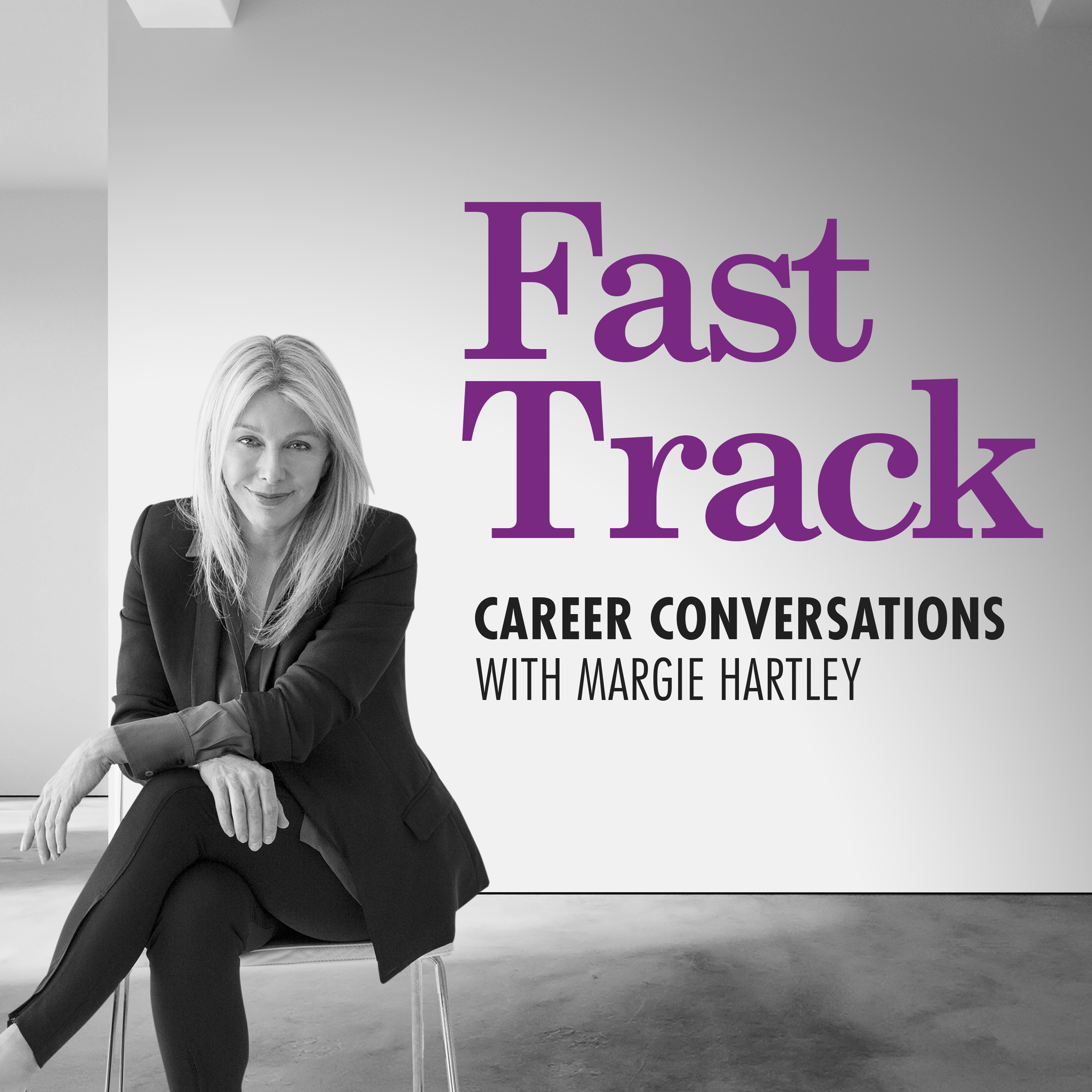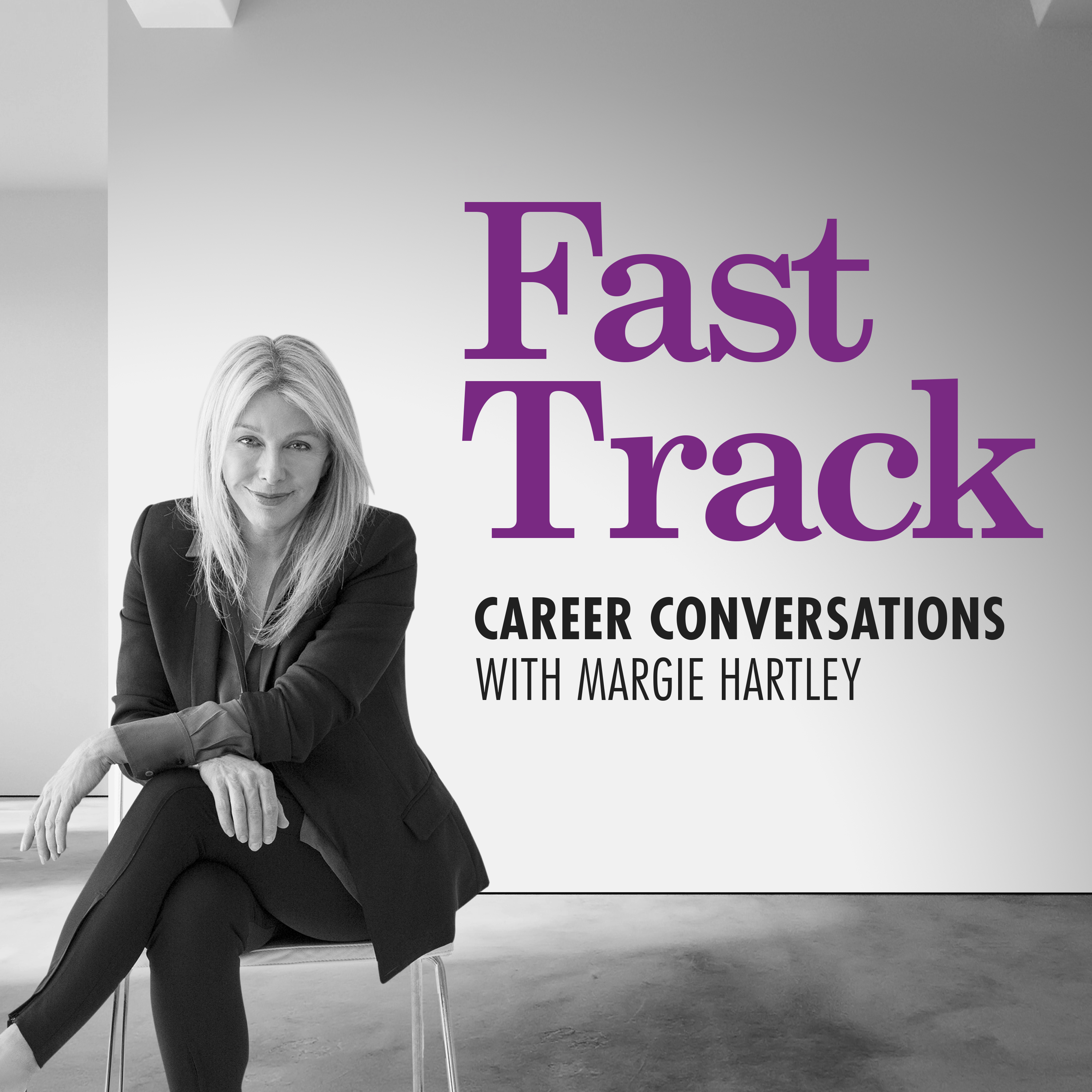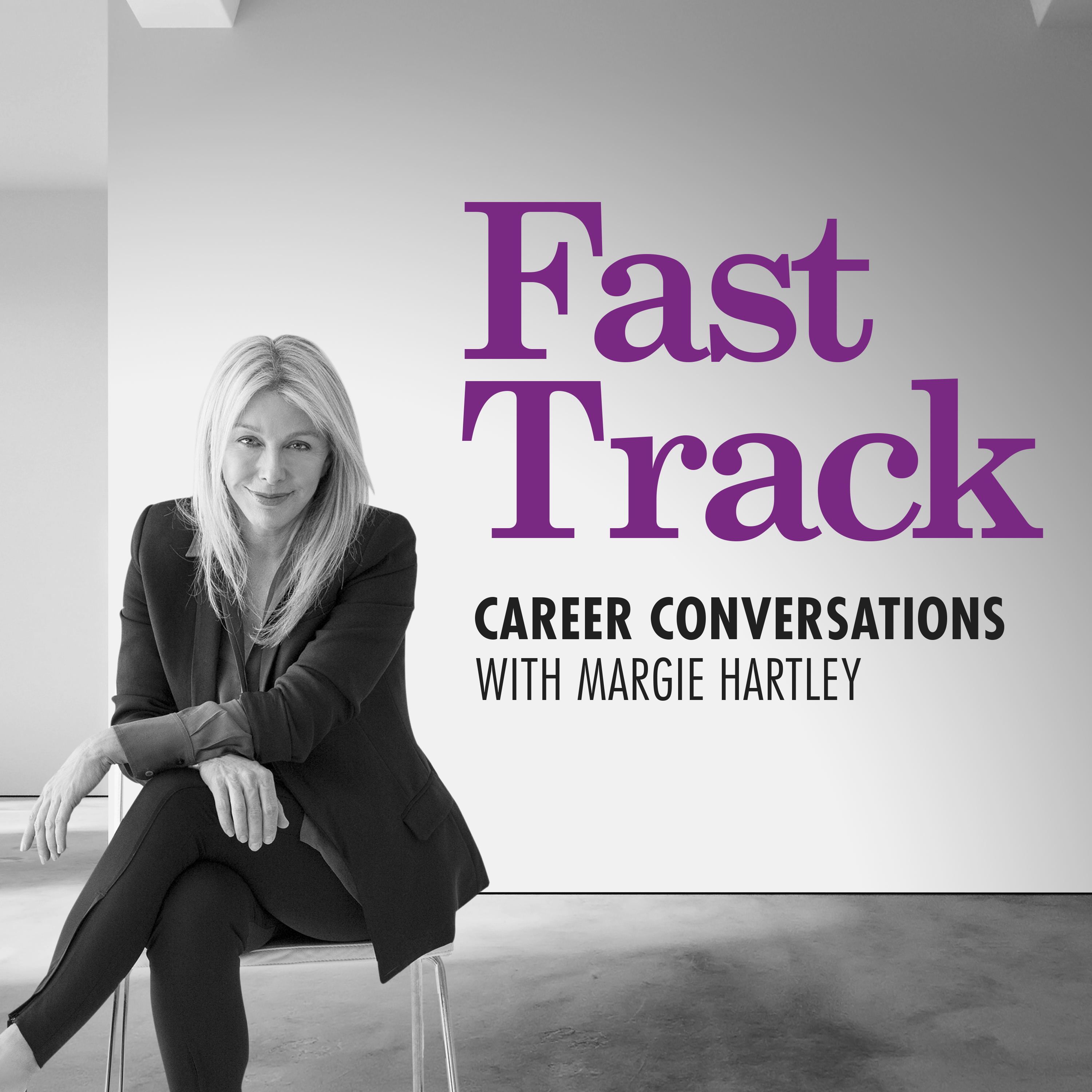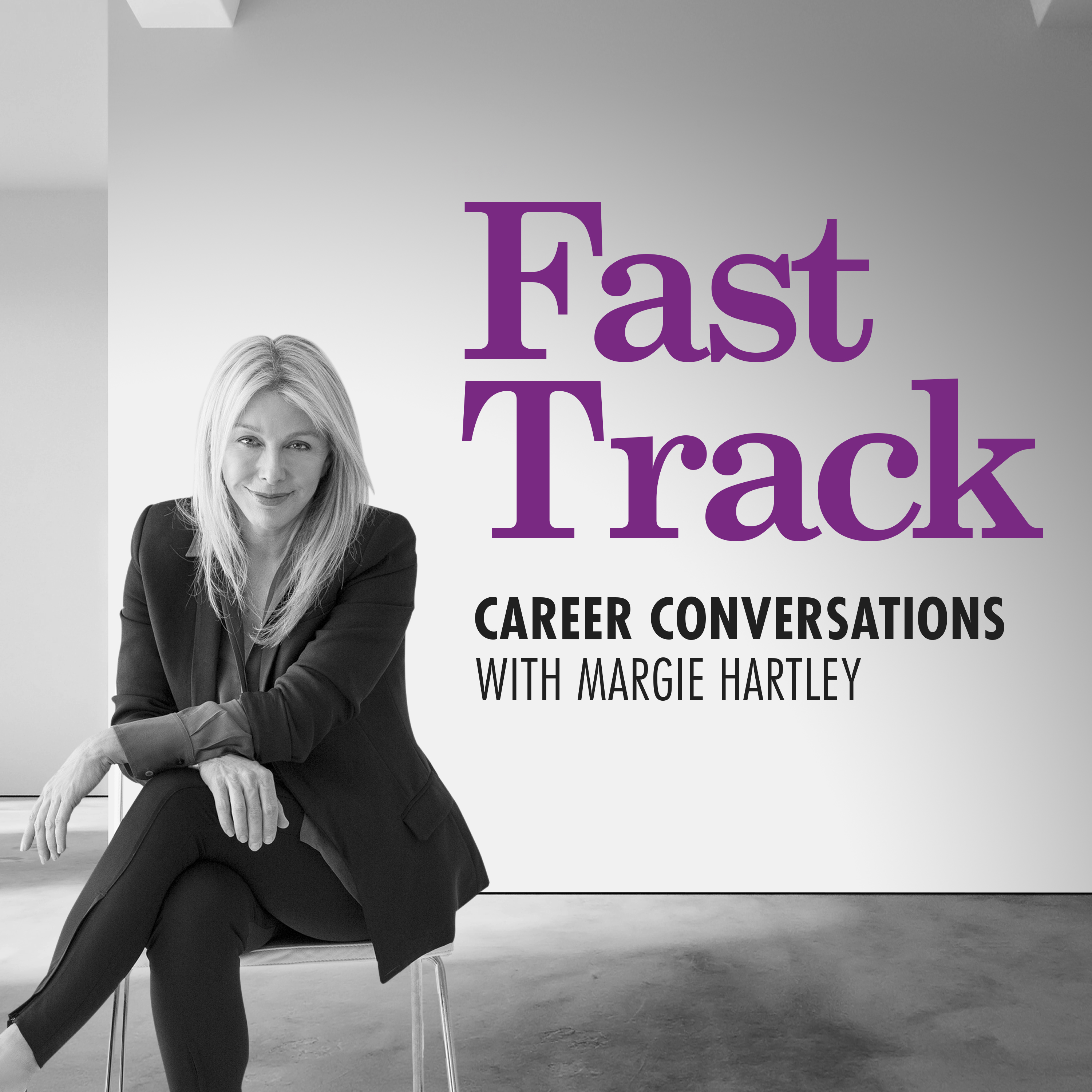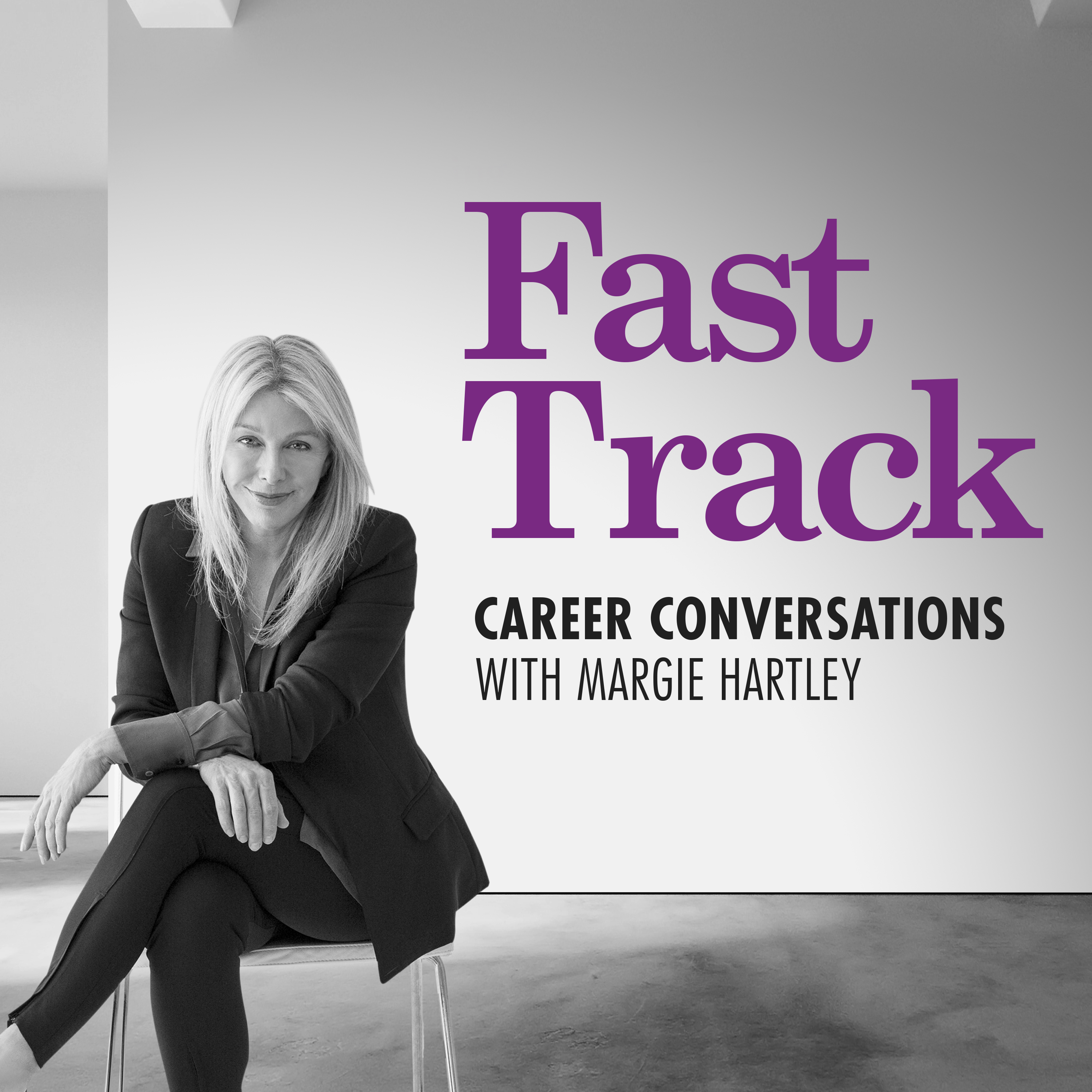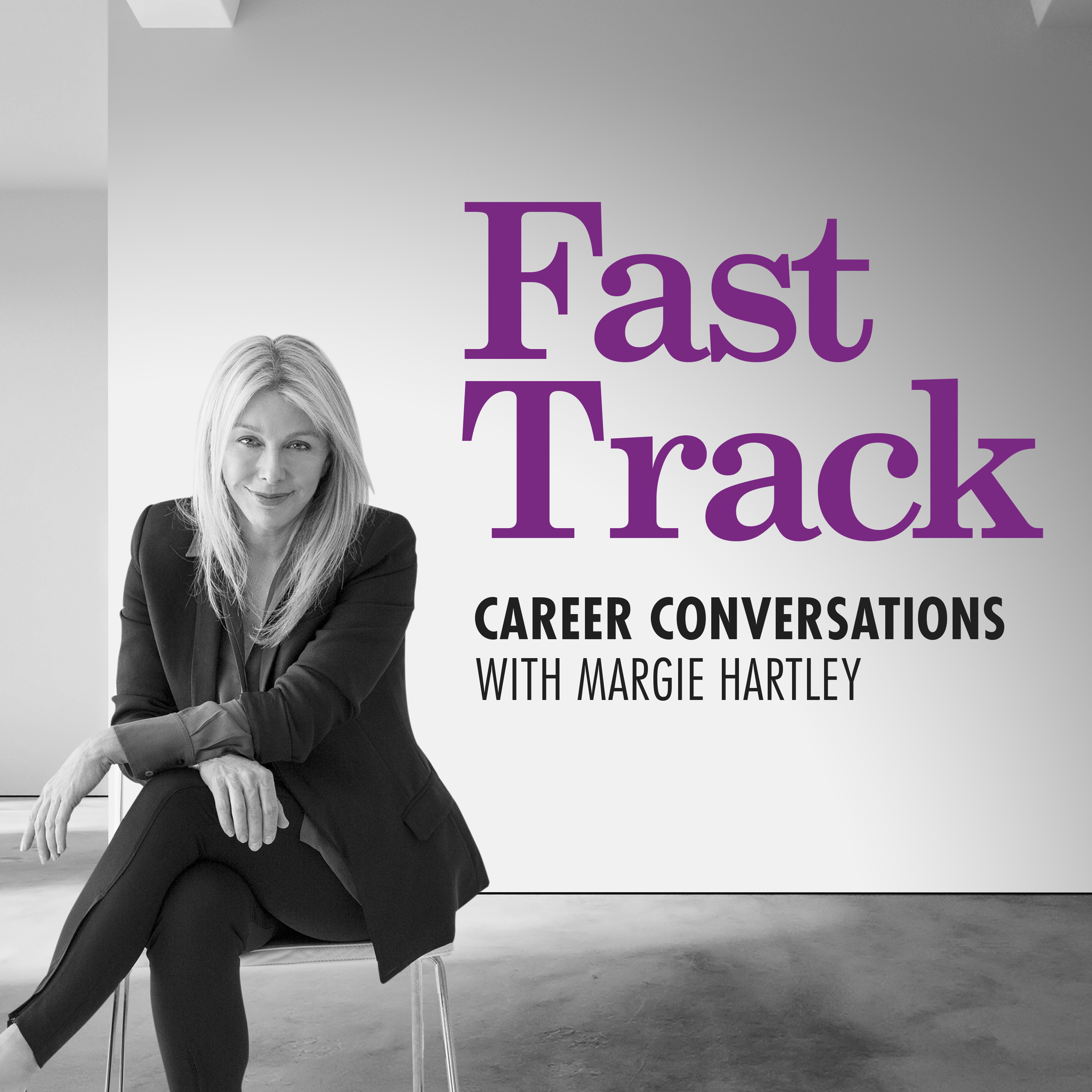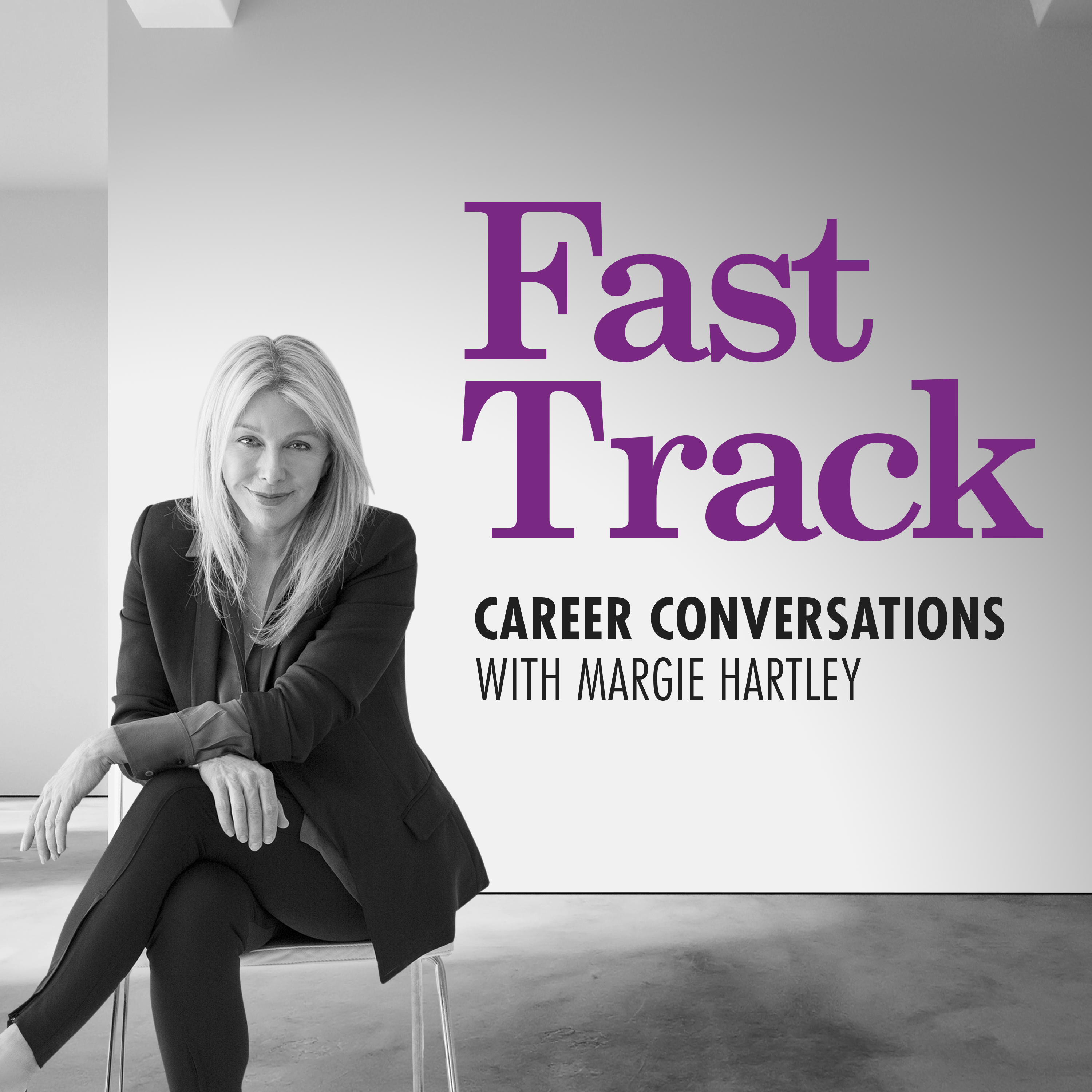Discover Fast Track: Career conversations with Margie Hartley
Fast Track: Career conversations with Margie Hartley

Fast Track: Career conversations with Margie Hartley
Author: Margie Hartley
Subscribed: 324Played: 5,574Subscribe
Share
© Copyright 2022 All rights reserved.
Description
Career Insights from CEO’s and business leaders. Margie Hartley, Executive Coach to 11 of the top ASX listed companies, discusses the challenges preventing people in the corporate world from advancing their careers and speaks to leading Executives and CEO’s about how to overcome these challenges.
101 Episodes
Reverse
Navigating the world of work and career is difficult at the best of times, and the pandemic has made it even harder. In this milestone 100th episode of Fast Track, Margie Hartley reflects on five impactful guests of the show around how to build psychological safety, dealing with jerks at work, the art of teamwork, the pursuit of perfection and being the coaching leader. Their expert advice and insights are sure to provide motivation and practical tips you can apply to accelerate your own career.
Being part of a toxic workplace or having a toxic leader can be complicated and confusing, and one person’s experience can be vastly different from another's. So how do we know if we're in a toxic workplace or have a toxic leader, and what can we do about it? Margie Hartley talks to Behavioural Scientist, CEO of Bright Research and Insights, and author of 'Bullying and Harassment: Understanding the psychological and behavioural tactics of the toxic leadership stronghold,' Susan Broomhall to get an evidence-based understanding of the different tactics used by toxic leaders that form a pattern of bullying, how a chaotic and dysfunctional environment enables leaders to have control, and insights to help navigate bullying and harrasment in the workplace.
Powerful speeches change minds, communities and the world, and teach us valuable lessons in the art of persuasion and creating positive change. Speech writing and presentation is a common minefield in leadership but a strong, engaging speech is imperative in giving direction, guidance and inspiration. Margie Hartley sits down with Founder of leadership consultancy Mojologic and author of What She Said, Monica Lunin to find out how powerful speeches work and why they’re effective, how we can deliver more persuasive presentations, why being good at oratorical leadership is so important to our career and how we can leverage the power of the spoken word.
Parents who work in today’s fast-paced, volatile, and at times disorientating world can easily lose track of who they are and what really matters most. Feelings of reactivity and running from one thing to the next abound and many parents feel guilt at work because they aren’t at home and guilt at home because they aren’t doing work. Margie Hartley speaks with Organisational Psychologist and co-author of Parents Who Lead, Professor Alyssa Westring about how a leadership mindset can help parents reframe their approach to work and parenting, how overwhelmed parents can refocus their attention to better align with their priorities and why we need to Parent with Purpose.
We all want to perform our best at work, but this often comes at the expense of our well-being or physical health. Margie Hartley sits down with Coaching Psychologist and author of 'Get Moving Keep Moving' Dr Gordon Spence to learn how we can perform well by living well, why getting the balance right is transformative and how to best increase our motivation, energy levels and ultimately create a longer and more successful life.
Have you got a sponsor? This is a question that is posed to workers in recent times and a discussion particularly held for women. So why is sponsorship important as part of an organisation's culture and what role can leaders play as sponsors in the workplace? Margie Hartley talks to Managing Director at Pathway To Your Potential and adjunct professor at Torrens University, Dr Jess Murphy to find out how sponsorship is different to coaching and mentoring, why meritocracy is a myth, and how to build a culture of sponsorship in the workplace.
In the age of the Great Resignation, the idea of quitting seems to be on everyone’s mind. Margie Hartley sits down with former Google and Twitter executive, now Senior Advisor at Boston Consulting Group and author of 'Don’t Quit Your Day Job' Aliza Knox, to uncover how to have a great career and a fulfilling personal life at the same time, why stamina is essential to longevity in a career and the importance of seeing the bigger picture and rising above the low points. They discuss the essential mind shifts needed to thrive, why success depends not just on hard work but also our ability to build and maintain genuine relationships throughout our career, and practical strategies for when we feel stuck in a job that no longer challenges or inspires us.
Have you ever watched a colleague charm the pants off management while showing a competitive, Machiavellian side to the lower ranks? They happily throw peers under the bus, but their boss is oblivious to their bad behaviour. What about a constantly interrupting colleague, or an over-bearing manager? Margie Hartley speaks with Professor of Psychology at New York University and author of 'Jerks at Work,' Professor Tessa West about how to spot a jerk at work, understanding their motivations in order to deal with them and the best way to manage and respond to poor behaviour in the workplace.
What do you do when you're a confident working human one day and then the next, a cancer diagnosis blows your life up? Margie Hartley talks to global digital leader and author of The Naked Truth About Breast Cancer, Jane Marshall to learn how to best handle difficult and disruptive life-changing events both personally and as leaders, how to navigate this important part of our identity alongside our work, and the right and wrong way to lead or work alongside someone who is going through a major personal crisis.
In several countries around the world, the four-day working week has been trialled where workers moved from a 40 hour week to 35 hours, without a reduction in pay. The trial found that productivity remained the same but wellbeing increased and there was a reduction in stress and burnout. So as we come out of the greatest remote working social situation, how does the four-day work week stack up? Margie Hartley speaks with Vice President of Research and Advisory for Gartner, Aaron McEwan about what’s possible with the 4 day work week, whether it's good for us, good for productivity and good for society.
'Work will never be the same again.' The phrase has been a mantra over the last two years, but what does it really mean? Has work actually been redefined through disruption or are we overplaying the changes to the way we work and our environment? Margie Hartley talks to Joan Lurie, Developmental Psychologist at Orgonomix about how we might redefine the workplace when we return to the office, what the opportunities and potential pitfalls might be and how leaders and organisations can get unstuck and thrive in the complexity of the changing world of work.
The greatest fear at work is often presenting; presenting a view, presenting a deck, presenting on a panel. A great presentation often stays with the audience and is remembered with affection or interest, while a bad presentation leaves everyone slightly relieved it’s over and wishing they’d be able to have the time back. As we continue to find the balance between physical and virtual presentations, how can we make sure our presentations are the most effective they can be in delivering their point across while engaging the audience? Margie Hartley talks to Tony Bulmer, founder of The Bulmer Group and a Presentation Coach with over 30 years experience to identify the ins and outs of compelling public speaking and presentation style, understand what’s different now in the virtual world of presentations and how we can get joy from presenting.
The term 'productivity' is well worn. Getting more done with less time and more efficiently sounds like a worthy goal. But is it just evil corporate-speak for squeezing more out of us all? Margie Hartley speaks with Australia’s leading productivity expert and author of The 1 Day Refund, Donna McGeorge to learn about the key principles of effectively using our time to make work enjoyable, how our productivity has changed in the last two years and the best way to manage our physical and emotional capacity.
With the current stop-start rhythm and momentum plus the uncertainty of returning to the office, there is a groundswell of people wondering how to ride this rollercoaster. How do we best deal with this ever-changing landscape in a practical way and make sense of our thinking and feelings? Margie Hartley talks to Jodi Oakman, Associate Professor of Public Health at La Trobe University about the relationship between work and our health and how to navigate uncertainty to best flourish.
'The Great Resignation' is a phrase being used a lot at the moment, referring to an exodus of talented people from their jobs, many rethinking their careers and either changing roles or choosing to stop working altogether. So what is the trend, what is happening to workers around the globe and what should we be doing about it? Margie Hartley speaks with Vice President of Research and Advisory for Gartner, Aaron McEwan about how the pandemic has reshaped society and our views towards work, and what we can learn from the trends to navigate the change and flourish.
Hardly a week goes by without hearing or reading about the phenomenon of Imposter syndrome; the feeling of being a fraud or waiting to be 'found out' by the people around us. In fact 70% of people have felt like imposters at some stage in their career. So what is this syndrome and what happens to us when we experience it? Margie Hartley talks to author, Mindset and Performance coach and founder of Imposterhood Suzanne Mercier about how imposter syndrome manifests, why it occurs and what to do about it.
Do you remember the first time you had to lead and manage people? Organising and communicating with people who you're responsible for can be daunting at first; learning the difference between telling and asking, delegating and influencing and having tough conversations is just part of managing others well. Margie Hartley speaks with Chief Human Resources Officer of SEEK, Kathleen McCudden about stepping up to people management in order to lead effectively, the qualities that define a great manager and how to continue to grow and develop as a leader.
It’s rare to find people raving about the experience of starting a family and navigating work; the balancing act of getting enough time off while managing a professional career is often precarious. Australia's maternity and parental leave is still considered to be one of the least generous parental schemes in the world, so has it developed enough to really make a difference? Margie Hartley speaks to Head of HR for Asia Pacific Spotify, Michael Kim about the possibilities of making parental leave work for everyone, the philosophy that sits behind Spotify’s people-centric approach and what other businesses and employees should look for when creating or asking for family and parental leave benefits.
The way finances are managed is a constant issue for business, affecting everything from sales, marketing, human resources, research and development to production and procurement. So why does it feel like a mystery for so many of us who aren’t CFO’s and how can we demystify it? Margie Hartley talks with Michelle Kvello, Managing Director & CFO of Lantern Partners to find out how she helps businesses gain clarity around their finances and why it's so important to understand how business decisions are made internally in order to be commercially successful in any corporate role.
In a period of such uncertainty and low control, a common phenomenon has arisen - a feeling of apathy, restlessness and a sense of monotony in the day to day, which filters through to our work life. Sociologists use the term languishing to refer to this psychological state which commonly manifests in trouble focusing, low motivation and lack of purpose. Margie Hartley speaks to psychologist and co-founder of Connect Psych services Dr Natalie Flatt Ph.D about why so many of us feel this way at the moment, what impact languishing is having on our brains and some practical tips we can put into practice to move from languishing to flourishing and thriving.


